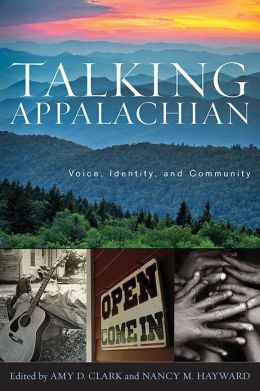George Ella Lyon asks in her essay, “What has happened to our taste for differences?” As a society, we have come to expect uniformity as a sign of efficiency. The same menu at the same chain restaurant across the Interstate system is a sign of quality control.
The grocery store contains only a few varieties of tomatoes, though outside in home gardens and at farmers’ markets we can find heirloom varieties. Heirloom: as in, a relic of the past.
As a society, our ears seek that same uniform voice from those around us.
I must admit my prejudice, realized when a friend first opened her mouth announcing her hometown with three syllables: Inez (eye-neh-uz).
This educated woman conscientiously chose to retain both her voice and her local identity.
Aside from hearing our Appalachian brothers and sisters – and occasionally poking a little fun – we rarely consider the origin or background of the sounds.
Their is no singular Appalachian voice. Rather it is a collection of dialects spread over many parts of the country from upstate New York to rural Mississippi. In Talking Appalachian, published earlier this year by the University of Kentucky Press, editors Amy D. Clark and Nancy M. Hayward examine “The Englishes of Appalachia.”
The text is divided into two parts with the former being academic in style and the latter being a compendium of experiences and writings of famed writers like George Ella Lyon and Silas House. This second portion is a beautiful collection of the memories from home coupled with the sad reminders of discrimination.
The discrimination was not over skin color or sexual orientation or religion: it was caused because someone sounded different. Because someone embraced, as George Ella Lyon labeled it, their “voiceplace.”
The academic portion of the book would fascinate the linguist yet is too deep for the casual reader. Even so, its anecdotes caused a smile to creep onto my face as I thought of my wife’s Carter County family or the bluegrass gospel music I so enjoy.
Writing on “a-prefixing” were one of those moments in a chapter penned by Kirk Hazen, Jaime Flesher, and Erin Simmons as they examined a scene from The Golden Girls:
Dorothy: Ma, what are you doing?
Sophia: Getting ready. There’s a hurricane a-coming!
Dorothy: A-coming?
Sophia: Yes. People only use the a- if the really big storm is a-coming or a-brewing.
Dorothy: Look, Ma, I don’t mean to be a-criticizing you.
Sophia: Don’t you patronize me!
Dorothy: I’m not patronizing you. I’m a-mocking you.
That “a-prefixing” was used and is now used in literature to “highlight dramatic action” according to the authors. The authors note that the linguistic tool has been utilized for 500 years and was, in old, to indicate a present action. (Think Hank Williams, Sr.’, bluegrass gospel, Are you walking and a-talking with the Lord?)
Jeffrey Reaser highlights our education efforts – a one size fits all approach – to express concern that more of that local identity will be lost. It may not be the case, however, because standard broadcast English has been on the airwaves of Appalachia for a half-century while the people have largely retained their local voice.
Even so, it is the book generally that raises the question of whether our education system, or we as individuals, should put such an emphasis on one pronunciation over another. Katherine Sohn views her North Carolina voiceplace as being a source of language, of identity, and of power. I believe my friend felt the same way and I now commend her for not succumbing to the mores of a our uniform society.
In her poem Spell Check, Anne Shelby writes: “Now it wants to replace homeplace with just someplace. Is this the same spell that changed proud to poor, turned minnows into memories?”
In all our support of “buy local” we have often failed to support our local identity. Talking Appalachian reminds us to also support a person’s voice, identity, and community.
Disclaimer: The University Press of Kentucky provided the author with a courtesy review copy of the book here reviewed. The amazon.com link to the reviewed book is part of an affiliate agreement between the author and amazon.com.

